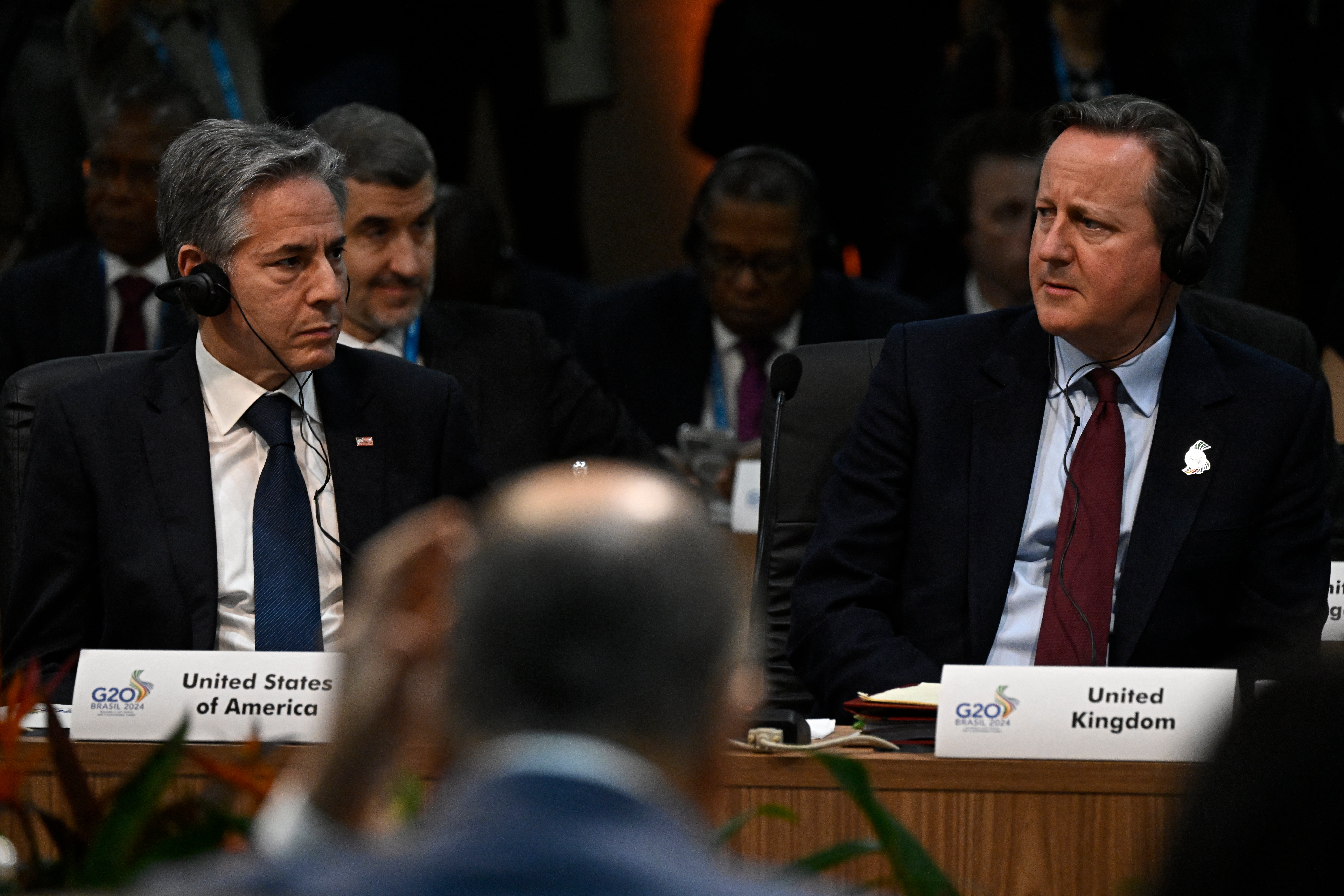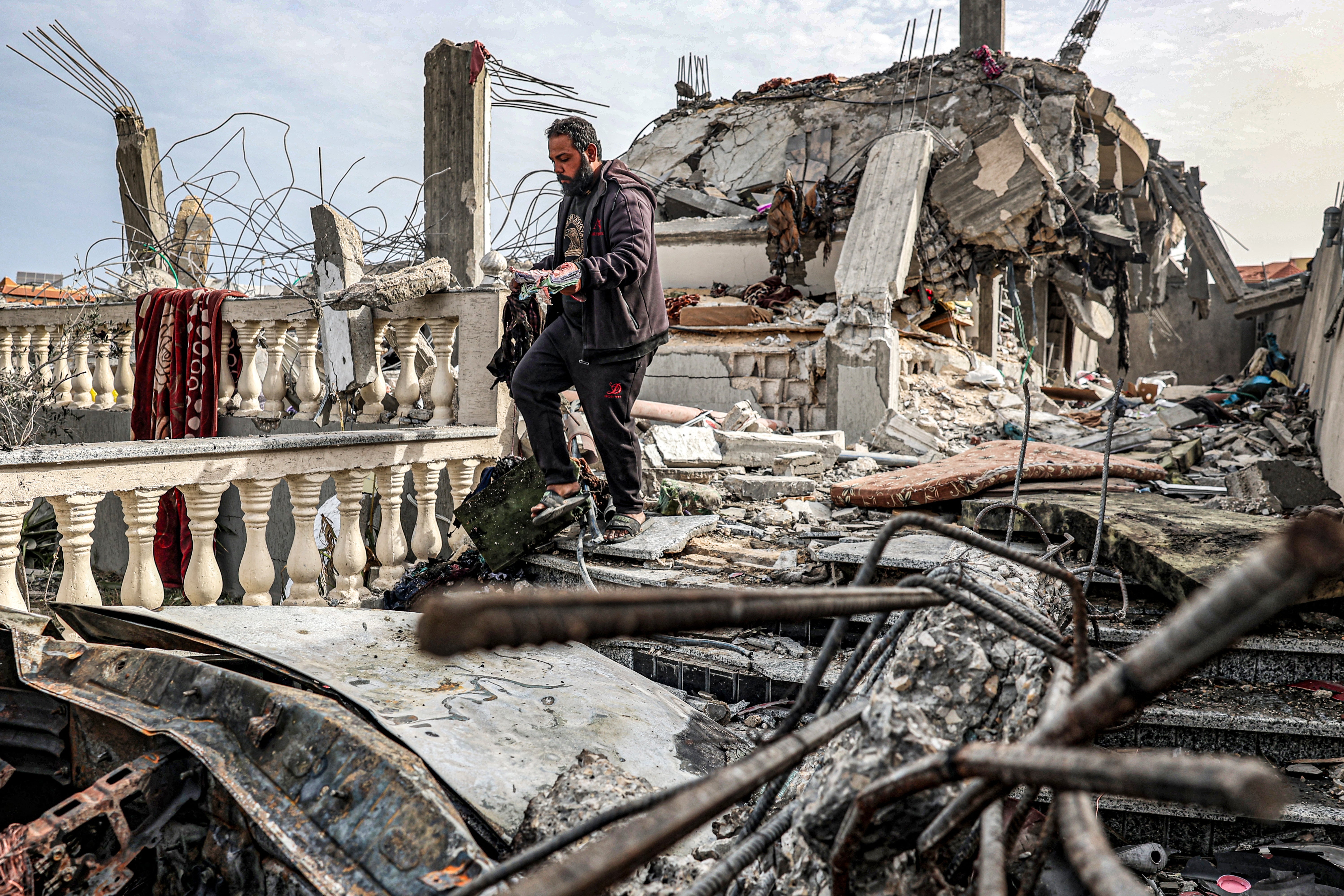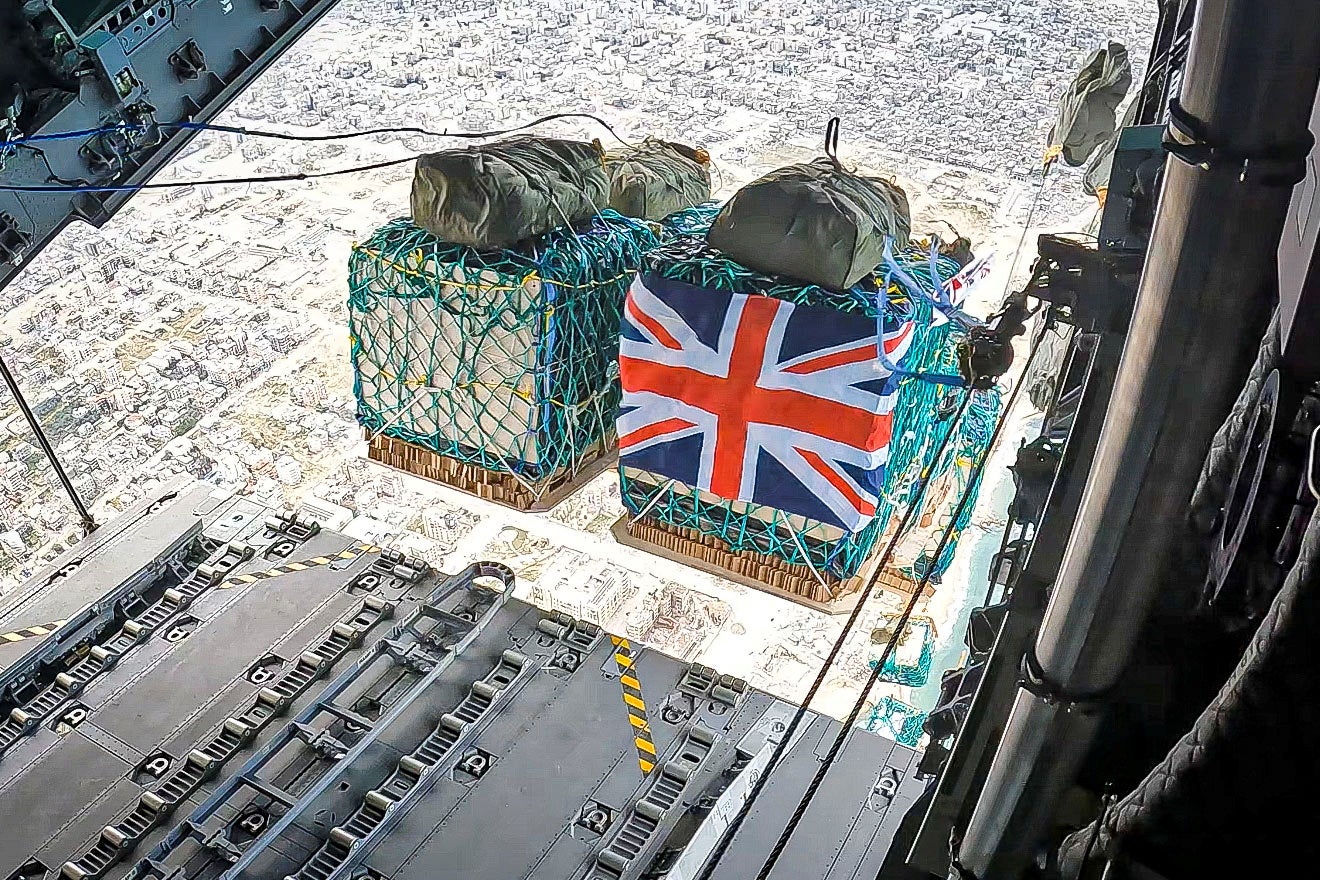Gaps are emerging between the UK and US over Israel – and it’s Cameron who is setting the tone
The so-called special relationship has frayed over how to approach the massive civilian harm caused by Israel’s war on Gaza. Richard Hall examines how the conversation is changing between the allies and the foreign secretary’s role in setting a new course

In the aftermath of the Hamas attack in southern Israel on 7 October last year, countries around the world rallied around Tel Aviv and pledged their support. Two allies however went further than most: the United States and the United Kingdom. Britain sent surveillance aircraft, two Royal Navy support ships and some 100 Royal Marines, while the US sent two aircraft carriers, along with ships and jets.
That quick action was symbolic of the lockstep between the US and UK when it comes to Israel.
On everything from weapons sales to United Nations resolutions, political support and military collaboration, the pair have been steadfast in their allegiance with Israel for decades.
But that may be changing. After nearly six months of devastating war in Gaza, with more than 32,000 Palestinians killed and over 1 million on the brink of famine, gaps are beginning to emerge between London and Washington DC in their relations with Israel.
Both countries have issued mild criticism of Israel’s conduct during the war, and both have expressed their opposition to an Israel operation in the city of Rafah, where more than a million Palestinians are now sheltering after being displaced from elsewhere in Gaza.
But in recent weeks, the UK has signalled that it may be willing to speak more directly – and perhaps even attach consequences to its words – regarding Israel’s ongoing war.
This shift in tone has been driven by the UK foreign office led by former prime minister David Cameron. Because of his former position on the world stage, Lord Cameron brings added significance to the already weighty foreign office. At times it has seemed as though he is doing more to set the tone on Gaza than current prime minister Rishi Sunak.
One such example came in a public letter to foreign affairs select committee chair, Alicia Kearns, on the subject of insufficient aid deliveries being allowed entry into Gaza last week. Lord Cameron blamed “arbitrary denials by the government of Israel and lengthy clearance procedures, including multiple screenings and narrow opening windows in daylight hours” for the blockages.
This came as multiple aid agencies, including the UN, warned that Gaza is on the brink of famine. The Integrated Food Security Phase Classification (IPC), whose assessments are relied on by UN agencies, said last week that nearly three-quarters of people in parts of northern Gaza were now experiencing the most severe level of food shortage, far exceeding the 20 per cent famine threshold.

That criticism has been echoed by UN agencies and aid groups, who have accused Israel of blocking life-saving aid. Israel has closed all but one of its land crossings into the strip. Antonio Guterres, the UN secretary general, called the IPC report an “appalling indictment” of conditions on the ground.
“This is an entirely man-made disaster and the report makes clear that it can be halted,” he told reporters at the UN headquarters in New York, calling on Israel to ensure access to humanitarian goods throughout Gaza.
Cameron’s letter went on to say that UK aid had been held up on the Gaza border for three weeks waiting for Israeli permission to enter, calling it an “enormous frustration”. He also criticised Israel for withholding water from some 300,000 people in northern Gaza, writing that “Israel has the ability to turn the taps back – they should do so.”
Those comments were more forthright than anything that has come from Sunak, and significantly more so than anything the US has said on the matter.
Indeed, the US has gone out of its way to avoid directly criticising Israel for blocking aid, even as widespread famine looms. Unable to persuade its ally with public pleas and private urging to allow sufficient aid deliveries into Gaza to prevent hunger from taking hold, the US took the extraordinary step of launching airdrops of aid into the strip and plans to build a temporary port on Gaza’s coast to facilitate further aid deliveries.
Aid experts said those measures would be insufficient to prevent a famine.
The Biden administration also cut funding to a UN agency that would be best placed to halt a famine. The US president this week signed into law a spending bill that eliminated US funding for the United Nations Relief and Works Agency for Palestine Refugees (UNRWA) until March 2025.

At the end of January, the US, UK and several countries halted funding for the UN agency, which deals specifically with Palestinian refugees, following allegations by Israel that some of its staff were involved in the 7 October attack by Hamas that killed 1,200 people. The UK is currently reviewing the allegations and has not said if it will restart funding when the investigation is complete.
Multiple aid agencies, however, have warned that UNRWA was the only agency capable of delivering the aid needed to prevent a famine in Gaza, and that the halt in funding would cause widespread fatalities.
Just this week, the state department went so far as to absolve Israel of blame for blocking aid deliveries. When questioned about whether US military support for Israel might be imperilled by mass civilian casualties and the holding up of aid, the state department spokesperson Matthew Miller told reporters: “We have not found [Israel] to be in violation of international humanitarian law, either when it comes to the conduct of the war or when it comes to the provision of humanitarian assistance.”
But Cameron’s foreign office has gone further still, signalling that it may be open to doing something the US has stubbornly resisted. Both the UK and the US have expressed their opposition to an Israeli operation in Rafah, citing the impossibility of doing so without massive civilian casualties, but only the UK has signalled that it may take the unprecedented step of halting arms sales should it go ahead.
According to a report in Bloomberg, citing government officials, the UK is assessing whether to restrict some arms exports to Israel if it invades Rafah – which it has said it will do with or without US support – or if the country obstructs aid trucks from entering Gaza. These actions stand in stark contrast to the US, which has stated its objections, but refused to entertain the idea of leveraging the billions of dollars in funding it sends to Israel each year.
It remains to be seen whether the gaps between the US and the UK regarding Israel are the result of a unique set of circumstances and driven by an ambitious foreign secretary, or if Cameron is setting an alternative path for the US to follow.
The relationship between the US and Israel is significantly more substantial than Israel and the UK – both in the scale of support and the domestic political importance.
And yet, there are finally signs of a slight shift in the White House.

On Monday, the US refused to use its veto to block a UN Security Council resolution calling for an immediate ceasefire in Gaza. It had done so three times previously, in support of Israel’s desire to continue its military operation until Hamas is eliminated.
In response, Israel’s prime minister Benjamin Netanyahu cancelled the planned visit of a high-level delegation to Washington DC in protest, and accused the US of “retreating” from what he said had been a “principled position”.
But even here, there was a split between the US and UK in the postscript of the vote. While the US ambassador to the UN, Linda Thomas-Greenfield, gave a unique interpretation of the resolution as “non-binding”. The UK’s ambassador, Barbara Woodward, contradicted that statement, however, declaring that the resolution “needs to be implemented immediately”.
“It sends a clear council message, a united council message, and we expect all council resolutions to be implemented,” she added.
Mr Biden is under growing pressure from his own party to do more to curtail the devastating Israeli offensive in Gaza, and from international allies. He faces a coordinated campaign by Arab American groups to withdraw their vote in the presidential election later this year in what was already a tough reelection battle against former president Donald Trump. Being tougher on Israel would also cost Biden politically, as it would require a break from decades of unconditional support for the ally.
Mr Biden was caught on a hot mic recently saying that he and Netanyahu may have a “come to Jesus” moment if he does not change course in the war and address Washington’s humanitarian concerns.
Israel’s invasion of Rafah, if it goes ahead in the coming weeks or months, will surely herald that moment.
Subscribe to Independent Premium to bookmark this article
Want to bookmark your favourite articles and stories to read or reference later? Start your Independent Premium subscription today.






Join our commenting forum
Join thought-provoking conversations, follow other Independent readers and see their replies
Comments